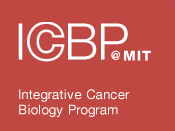| Title | AATF/Che-1 acts as a phosphorylation-dependent molecular modulator to repress p53-driven apoptosis. |
| Publication Type | Journal Article |
| Year of Publication | 2012 |
| Authors | Höpker, K, Hagmann, H, Khurshid, S, Chen, S, Hasskamp, P, Seeger-Nukpezah, T, Schilberg, K, Heukamp, L, Lamkemeyer, T, Sos, ML, Thomas, RK, Lowery, D, Roels, F, Fischer, M, Liebau, MC, Resch, U, Kisner, T, Röther, F, Bartram, MP, Müller, RU, Fabretti, F, Kurschat, P, Schumacher, B, Gaestel, M, Medema, RH, Yaffe, MB, Schermer, B, Reinhardt, HC, Benzing, T |
| Journal | EMBO J |
| Volume | 31 |
| Issue | 20 |
| Pagination | 3961-75 |
| Date Published | 2012 Oct 17 |
| ISSN | 1460-2075 |
| Keywords | Active Transport, Cell Nucleus, Amino Acid Sequence, Animals, Apoptosis, Apoptosis Regulatory Proteins, Cell Cycle Checkpoints, DNA Damage, Doxorubicin, Drug Resistance, Neoplasm, Endometrial Neoplasms, Female, Gene Amplification, Gene Dosage, HEK293 Cells, Humans, Mice, Molecular Sequence Data, Multiprotein Complexes, Myosin Light Chains, Neuroblastoma, Osmotic Pressure, Phosphorylation, Prognosis, Protein Processing, Post-Translational, Repressor Proteins, Tumor Suppressor Protein p53 |
| Abstract | Following genotoxic stress, cells activate a complex signalling network to arrest the cell cycle and initiate DNA repair or apoptosis. The tumour suppressor p53 lies at the heart of this DNA damage response. However, it remains incompletely understood, which signalling molecules dictate the choice between these different cellular outcomes. Here, we identify the transcriptional regulator apoptosis-antagonizing transcription factor (AATF)/Che-1 as a critical regulator of the cellular outcome of the p53 response. Upon genotoxic stress, AATF is phosphorylated by the checkpoint kinase MK2. Phosphorylation results in the release of AATF from cytoplasmic MRLC3 and subsequent nuclear translocation where AATF binds to the PUMA, BAX and BAK promoter regions to repress p53-driven expression of these pro-apoptotic genes. In xenograft experiments, mice exhibit a dramatically enhanced response of AATF-depleted tumours following genotoxic chemotherapy with adriamycin. The exogenous expression of a phospho-mimicking AATF point mutant results in marked adriamycin resistance in vivo. Nuclear AATF enrichment appears to be selected for in p53-proficient endometrial cancers. Furthermore, focal copy number gains at the AATF locus in neuroblastoma, which is known to be almost exclusively p53-proficient, correlate with an adverse prognosis and reduced overall survival. These data identify the p38/MK2/AATF signalling module as a critical repressor of p53-driven apoptosis and commend this pathway as a target for DNA damage-sensitizing therapeutic regimens. |
| DOI | 10.1038/emboj.2012.236 |
| Alternate Journal | EMBO J. |
| PubMed ID | 22909821 |
| PubMed Central ID | PMC3474921 |
| Grant List | 260383 / / European Research Council / International CA112967 / CA / NCI NIH HHS / United States ES015339 / ES / NIEHS NIH HHS / United States GM68762 / GM / NIGMS NIH HHS / United States |
